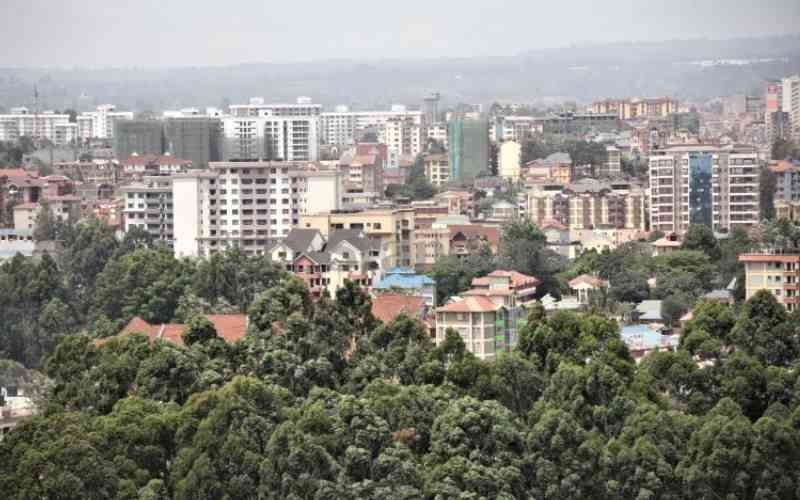Reports that the receiver managers of Kinangop Wind farm had resolved to auction equipment must have come as a shocker to those who still harboured hopes of reviving the 60 megawatts (MW) project.
The plug has been pulled on the Sh15 billion mega-power project which was expected to wire an additional 15,000 homes to the national grid. The Kinangop Wind Park (KWP) is as dead as a dodo. And the reason was simple—a land compensation stalemate between the contractor and locals in Kinangop, Nyandarua.
Unknown to many is that the protracted land compensation process is not just killing these projects, it is also slowly but surely killing our dream of becoming an industrialised, middle income economy by 2030.
Kinangop Wind Park (KWP) is just one of the many mega-projects that have stalled due to the country’s laborious land compensation process. Land, which for long has been our source of agricultural prosperity, is fast turning into a curse to our industrial ambitions.
Not long ago, Kenyan delegation spiritedly tried to persuade their Ugandan counterparts to consider using the Kenyan route for their crude oil pipeline. But all these efforts came to naught as Uganda trashed an earlier agreement they had struck with Kenya and went for the rather longer, costlier Tanzanian route for the Sh405 billion project.
Hostility from locals
One of the main hindrances was Kenya’s complex land compensation process. And the Ugandans did not mince their words: “Land acquisition process is estimated to be at least one year longer in Kenya than in Tanzania,” they said in a technical report.
The report added that while it took just nine months to acquire a way-leave for the Mtwara–Dar es Salaam pipeline (542km) in Tanzania, it took the government of Kenya at least two years to acquire land for the building of Standard Gauge Railway because of land disputes.
This single decision might have thrown into disarray one of Kenya’s greatest infrastructure projects —the Lamu Port Southern Sudan-Ethiopia Transport (Lapsset). And yet there are more to come under the Sh2.5 trillion infrastructural projects. The projects will consist of a road network, a standard gauge railway, a port, oil pipeline and refinery, three airports and three resort cities.
Last year, British firm Tullow, an oil exploration firm, was forced to suspend its operations in Kerio Valley citing hostility from the locals. Residents who for long had lived on community land which had no land titles now pestered the government for land titles. With the title deeds, they saw a rare opportunity partake in the black gold-rush.
Even the much-hyped Standard Gauge Railway (SGR) was not spared the inconveniences of the country’s land curse. It was not until after two years that the Chinese contractors broke ground on the Sh327 billion project.
Construction of the SGR was intermittently delayed by land compensation hiccups with the contractor, China Road and Bridge Corporation (CRBC), expressing fear that delays experienced in acquiring the land and relocating individuals and entities would frustrate the country’s goal of having a modern railway by 2020.
Work on some sections of the railway delayed to start following revelations that some individuals had provided the National Land Commission (NLC) with inaccurate bank details. For most Kenyans, the silver bullet to this land compensation debacle was the promulgation of the new, more progressive Constitution and the Land Act 2012.
Basically, while the law permits the Government to compulsorily acquire land in the public interest, land owners of either community or private land, have to be compensated promptly. “The Constitution in Section 40 also says that you cannot take anybody’s land without compensating them. So compensation is a must for community land and private land,” says the National Land Commission Chairman Mohamed Swazuri. But how should they be compensated, and how fast?
Sentimental value
Jacqueline Munyaka, an advocate of the High Court says that the Constitution is very clear on this matter: the land owner has to be compensated for the land at market value. “The issue is that some people are greedy. They know that there is some standard gauge railway coming up soon so they will escalate their prices. But then the government is also being pragmatic, it says: ‘we cannot pay you over and above what it (the land) used to go for before the Standard Gauge Railway came around.”
Swazuri says that the process of compensating land-owners takes long because some people do not want to give up their land; others don’t want to be re-located to another land, they want cash; others will contest the valuation; and there are those who have disputes within themselves on who should be paid.
By the time all these things are sorted out, work on a given project in our neighboring Tanzania where land is owned by the State, would be at advanced stage. This explains why investors are ditching Kenya for Tanzania.
In Kenya, even for a man in a God-forsaken land, being told that his land has oil deposits automatically raises the value of the land. That land ceases to be a useless piece of dry-land that he could abandon at will, to a valuable piece of land has sentimental value, according to Munyaka.
Munyaka explains that to the land owner, the market value is now seen in terms of oil. “They (locals) have been sitting on minerals or oil, they don’t know. Suddenly, it is discovered that there is oil. So you are telling them that they will be compensated the way the land was going yesterday?” said Munyaka noting that such are the complex issues in the land compensation process.
Enrich people
Another High Court advocate, Nick Abidha says the law has gaps. “We have legislated on the amount that should always be awarded to the interested parties. Some people have taken advantage of that to always get too much from the government,” says Abidha.
Assessing the value of land is not provided for in the Act and as such most of the times the parties find themselves in Court which slows down the process further. “For all that damage, you need to consult. Public engagement is very important. I think that is something that has been missing,” says Munyaka albeit it will not necessarily expedite the process, which is the real problem.
But even more critical, the public should accept that for public projects to benefit them they have to change their attitude. “And they should not expect to make a kill out of public project. If we change the attitude that compensation is not meant to enrich people, it is only meant to keep them at the same level as they were before the land was taken away then that one will speed up the process,” says Swazuri.
—[email protected]
 The Standard Group Plc is a multi-media organization with investments in media
platforms spanning newspaper print operations, television, radio broadcasting,
digital and online services. The Standard Group is recognized as a leading
multi-media house in Kenya with a key influence in matters of national and
international interest.
The Standard Group Plc is a multi-media organization with investments in media
platforms spanning newspaper print operations, television, radio broadcasting,
digital and online services. The Standard Group is recognized as a leading
multi-media house in Kenya with a key influence in matters of national and
international interest.
 The Standard Group Plc is a multi-media organization with investments in media
platforms spanning newspaper print operations, television, radio broadcasting,
digital and online services. The Standard Group is recognized as a leading
multi-media house in Kenya with a key influence in matters of national and
international interest.
The Standard Group Plc is a multi-media organization with investments in media
platforms spanning newspaper print operations, television, radio broadcasting,
digital and online services. The Standard Group is recognized as a leading
multi-media house in Kenya with a key influence in matters of national and
international interest.









